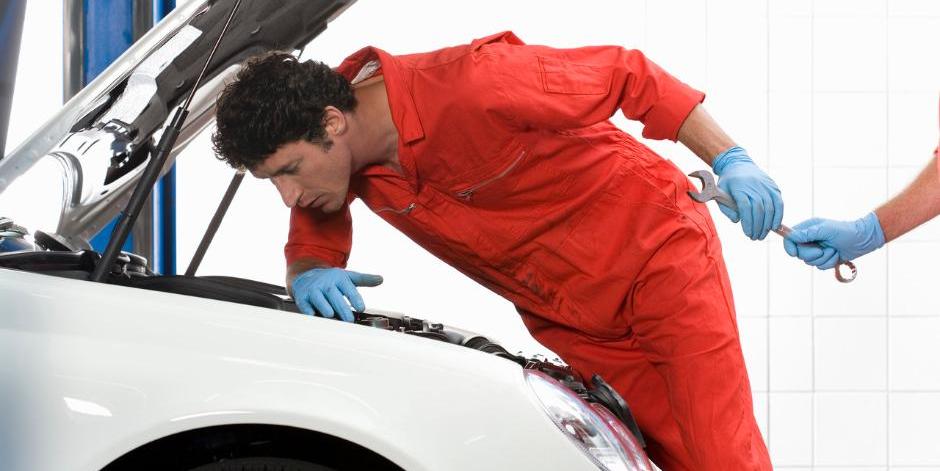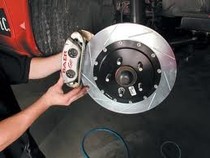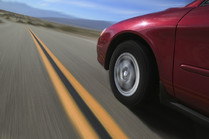
FAQs - Brakes
Q: When can I expect the brakes on my new vehicle to need servicing?
A: Trucks and SUVs - 20,000 to 30,000 miles; cars - 25,000 to 45,000 miles.
Q: How often should I check my brakes?
A: At least every 6,000 miles. It’s best to inspect the brakes anytime the wheels are off your car. If you change your oil every 3,000 miles, have your tires rotated and your brakes checked every other oil change.
Q: Does the brake fluid need to be changed periodically?
A: It is impossible to determine based on color, smell, or touch when your brake fluid has become contaminated, although chemical tests are available. Change the brake fluid at 24,000- to 36,000-mile intervals, anytime you have work done on the brake lines or cylinders.
Q: How do I know whether I need new brakes?
A: If your brakes grab, pulse, make noise, or respond slowly, or if you have any other concerns, take your vehicle to Tolker Auto Service for a free inspection. We’ll carefully examine the entire brake system—pads/shoes, calipers, rotors/drums, brake lines and cylinders, and anti-lock controls. You might just need a cleaning and adjustment, but it could be time for new brake parts or other repairs.
Q: My brakes are noisy, what do I do?
A: It might be time for a brake adjustment or cleaning, or it could be something more serious. Visit Tolker Auto Service for a free inspection. We’ll check your entire brake system and make recommendations on maintenance or repairs.
Q: My brake pedal seems mushy, what could be wrong?
A: Too much play in your brake pedal can mean a number of things, from worn brake pads or shoes to a leak in the brake lines. We would be happy to look at your brakes for free.
Q: When I press the brake pedal, my car shudders. Is this dangerous?
A: Bring your car in for a free brake check as soon as possible. Potential problems include warping or pitting of your rotors/drums, which we can help correct. Or, their might be air in the brake lines, a sign of more serious trouble.
Q: My brake light came on, what do I do?
A: Your brakes need immediate attention and might not be safe to drive. When in doubt, call a tow truck.
Q: What should I do if my brakes fail?
A: With modern brake designs, total brake failure is extremely rare, but unnerving. Check your rear view mirror, gradually decelerate, downshift if your vehicle has a manual transmission, and when safe, steer to the side of the road. When stopped, turn off your engine and apply the parking brake. Never use your parking brake as an emergency brake. The sudden application of the parking brake can cause you to lose control of your vehicle.
Q: My car has an anti-lock brake system (ABS). Do I need to brake differently?
A: Yes. Instead of pumping your brakes, press the pedal firmly and without letting up. Let the ABS work for you, so that you can concentrate on steering. It is normal to feel or hear vibrations as the ABS adjusts your car’s brakes to hazardous situations.


